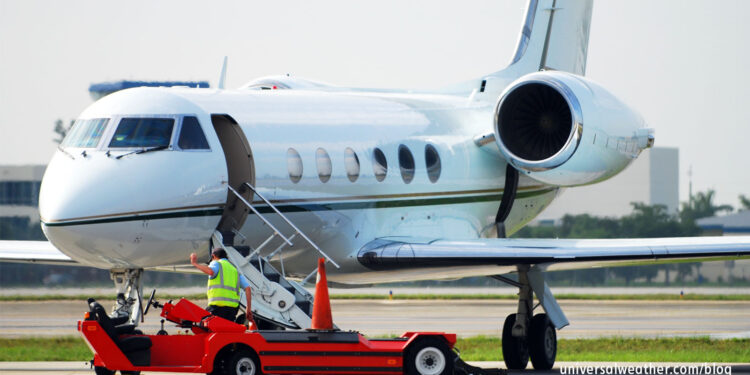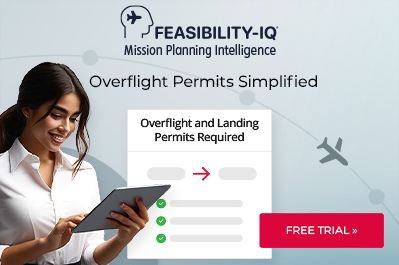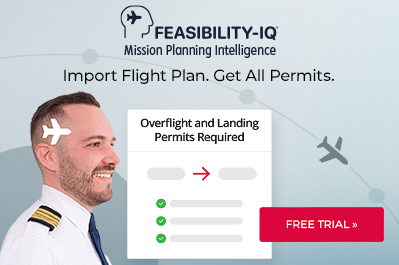8 Tips on Arranging Aircraft Ground Handling and Fuel in Brazil

This business aviation blog post is part of a series on operating to Brazil.
When it comes to arranging aircraft ground handling and fuel in Brazil for business aircraft operations, adequate pre-trip planning is essential. The country is more regulated than it was a few years ago, even for locally based operators, and challenges do exist. While tech stops are relatively easy, and single stops at one airport are usually straightforward when you’re planning domestic operations within Brazil, additional requirements and operational delays are to be expected. It’s best practice to work with your 3rd-party provider or ground handler as early as possible, in order to ensure a smooth experience on the ground.
Here is some information to help you plan for ground handling and fueling in Brazil:
1. Know the information you must provide to your ground handler in advance
You’ll need to supply schedule, crew and passenger information, aircraft registration, certificate of airworthiness, worldwide insurance, and both pilot-in-command (PIC) and second-in-command (SIC) airline transport licenses (ATP) and ‘first class’ medical certificates. Without this information in advance, ground handling, permits, and aircraft parking cannot be set up. A landing permit must be obtained prior to any operation into Brazil if you’re making more than one stop, and most locations require a minimum of 48 hours’ notice. Note that PIC and SIC ATP licenses must be from the same country or validated by the same country where the aircraft is registered, which is verified by the authorities during the domestic flight permit process. Passports for crew and passengers should have six months’ remaining validity. However, if you have less than six months you’ll usually be authorized to stay until your passport expires.
2. Be aware of the process that follows once the local ground handler receives your handling request—and associated timelines
Your local ground handling agent will apply for aircraft parking on the airfield based on your supplied schedule. If parking is not available, the agent should advise you on alternate airport options. Assuming that parking is confirmed, the ground handler will set up your landing permit and ground handling arrangements. Aircraft parking can be a problem in Brazil, particularly at Sao Paulo airports. The most difficult airport, in terms of aircraft parking, is Campinas, Brazil (SBKP), as it will only be confirmed two hours prior to your estimated time of arrival. If you’re flight- planned to SBKP and aircraft parking is denied, you may not use SBGR as an alternate. In this case, you may have to deviate to Rio de Janeiro, Brazil (SBGL) or tech stop in northern Brazil and operate into Congonhas Sao Paulo, Brazil (SBSP), which is not an international Airport of Entry (AOE). SBKP only has three to four general-aviation parking positions available, so it’s best to avoid using this airfield, particularly on longer international sectors into Brazil.
Keep mind that your first landing in Brazil may require 1.5 hours on the ground if your next leg is domestic. This timeframe is required to clear customs and have the domestic-landing permit issued, which involves the captain going to customs to sign the permit before the authorities will validate it. Flight plans for your next domestic leg must be filed and paid for via ground handler credit, operator’s credit card, or cash. Flight plans can be pre-filed up to 45 minutes prior to your estimated time of departure (ETD) via AFTN, fax, or in person at Air Traffic Control (ATC). Landing fees must be paid at least 45 minutes prior to ETD so that flight plans can be filed and validated. Landing fees cannot be pre-paid prior to aircraft arrival, and earliest departure will be 45 minutes after the flight plan is validated. It’s not recommended for operators to make payment on their own as the process can take much longer.
3. 24-48 hours’ notice is required to set up ground handling, depending on your next leg flown
If you require a domestic landing permit to operate domestically within Brazil, your ground handler will need at least 48 hours’ notice and require all necessary documentation in advance. If no domestic landing permit is needed – in the case of operators flying to only one international airport within Brazil – 24 hours’ advance notice is sufficient. Securing aircraft parking at Brazilian airports is often much more challenging and time-consuming than arranging landing permits. For international tech stops, 24 hours’ advance notification is adequate. Note that, in Brazil, a tech stop is defined as only one stop within Brazil for fuel at an AOE.
4. Schedule or manifest changes may take up to 24 hours to reconfirm
Small changes, such as delaying or extending your stay for a few hours, can usually be negotiated with airport authorities fairly quickly. However, if a schedule change impacts your aircraft parking authorization, this may require 24 hours to reconfirm. Changes in passenger manifest are not a problem, but crew changes when operating on a domestic permit take a minimum of 24 hours to reconfirm.
5. Full-service ground handling is typically not available at smaller airports
You can expect full service ground handling at major locations such as Rio de Janeiro, all three Sao Paulo airports, Brasilia, Manaus, Recife, and Salvador. However, many smaller domestic airports in Brazil may not have ground handlers available and English-speaking personnel at ATC or the terminal may be inadequate. It’s possible to reposition ground handlers to any location, either traveling aboard the aircraft or sent in advance via airline, at the operator’s request.
6. Always confirm your equipment needs with your ground handler, as equipment may not be available
Some ground handlers own ground-service equipment while others lease from 3rd parties. Towbars are necessary for certain airports, including SBSP, so always confirm that your ground handler has a towbar available for your type of aircraft. Be aware that oxygen can only be supplied to N-numbered aircraft by an FAA-licensed mechanic (unless you have a licensed flight mechanic onboard). It can be very difficult finding a local FAA licensed mechanic to fill up aircraft oxygen tanks.
7. Arrange jet fuel in advance with your ground handler or face delays
It’s recommended that your ground handler set up and confirm jet fuel delivery well before arrival. This way, they can have the fuel truck on location and waiting for you before the ETD. You’ll be fueled by the same trucks – Petrobras or Shell – that service commercial airlines, and you may face 1-2 hour delivery delays if the fuel uplift hasn’t been arranged and confirmed in advance. Communication between the ground handler and the fueler is done by e-mail when there’s a fuel release involved. Short- notice fuel requests, and confirmations of fuel uplifts, are done via phone.
8. To save money on jet fuel, use an aviation fuel card
All major aviation fuel cards (also known as fuel carnets), are accepted, as well as major credit cards. For international flights, no sales tax is charged on fuel. Using an aviation fuel card is always recommended. If you pay with cash or credit cards, you might receive posted price and not a contract price, as we wrote about in our previous article. For more detailed information on what to look out for when fueling in Brazil, read our previous article on this topic.
Conclusion
Assuming adequate pre-trip planning has been done, your flight to Brazil should be a trouble-free ground handling experience. Have the correct documentation and be aware that schedule revisions, particularly at Sao Paulo airports, have the potential to cause significant aircraft parking complications.
Questions?
If you have any questions about this article, contact me at andrecamargo@universalaviation.aero.
Next week, we’ll discuss airport slots in Brazil.




